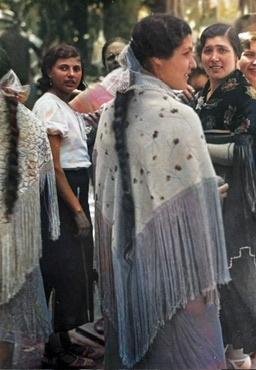How do traditional Catalan naming customs influence the choice of children’s names in Mallorca?
Similar Topics
traditional catalan naming
mallorcan children names
catalan cultural identity
catalan surnames custom
catholic saints names
mallorcan name variants
bilingual catalan spanish
mallorcan naming tradition
Traditional Catalan naming customs have a significant influence on the choice of children’s names in Mallorca, reflecting the island's deep-rooted cultural identity within the Catalan-speaking regions. In Mallorca, as in other Catalan-speaking areas, names often carry strong connections to local heritage, language, and religious traditions. Parents frequently select names that are of Catalan origin or have been historically popular in the region, helping to preserve the linguistic and cultural distinctiveness of the island. This practice is partly tied to the broader Catalan practice of bilingual or even trilingual identity, where Spanish and Catalan coexist, but Catalan names are a way of expressing a proud regional identity.
Moreover, traditional naming conventions in Mallorca typically follow the Catalan model of using two surnames: one inherited from the father and the other from the mother, usually in that order. This custom underscores the importance of family lineage and ancestry, anchoring each child’s identity within both sides of their familial heritage. When choosing first names, locals often favor saints’ names tied to Catholic traditions that have shaped Mallorcan culture for centuries. These names not only reflect religious devotion but also mark the continuity of tradition, as many names are passed down through generations.
The influence of Catalan naming customs also extends to the preservation of unique Mallorcan variants or diminutives of common names, which can be quite distinctive and imbue a sense of local pride. For example, a child named “Joan,” a common Catalan name, might also be affectionately called “Xano” or “Joanet,” adding a personal and regional touch. In addition, there is a rising trend to revive older, less common Catalan names, as part of a broader cultural renaissance aimed at maintaining linguistic heritage amidst modern influences. This has helped strengthen the cultural fabric of Mallorca, ensuring that naming practices continue to serve as a meaningful expression of Mallorcan identity and tradition.
Moreover, traditional naming conventions in Mallorca typically follow the Catalan model of using two surnames: one inherited from the father and the other from the mother, usually in that order. This custom underscores the importance of family lineage and ancestry, anchoring each child’s identity within both sides of their familial heritage. When choosing first names, locals often favor saints’ names tied to Catholic traditions that have shaped Mallorcan culture for centuries. These names not only reflect religious devotion but also mark the continuity of tradition, as many names are passed down through generations.
The influence of Catalan naming customs also extends to the preservation of unique Mallorcan variants or diminutives of common names, which can be quite distinctive and imbue a sense of local pride. For example, a child named “Joan,” a common Catalan name, might also be affectionately called “Xano” or “Joanet,” adding a personal and regional touch. In addition, there is a rising trend to revive older, less common Catalan names, as part of a broader cultural renaissance aimed at maintaining linguistic heritage amidst modern influences. This has helped strengthen the cultural fabric of Mallorca, ensuring that naming practices continue to serve as a meaningful expression of Mallorcan identity and tradition.
🧩 Related Questions
Related Question
How has Maria del Mar Bonet contributed to the preservation of Mallorcan folk music traditions?
Related Question
What historical factors led to nuns being central caregivers in Mallorca before the healthcare system became secularized?
Related Question
What vegetarian dishes in Mallorca might complement or substitute the flavors of these traditional sausages?
